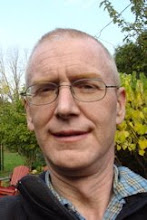I have been limited, in the books I can borrow at the university of Ottawa, as I am now an alumni and no longer a student. This is a good thing because I had gotten into a habit of borrowing tens of books and not reading these books. Also carrying all these books was a heavy load. I am cut down now to only being able to borrow 15 books.
I am borrowing a book on music and the brain, as my only university library music book out on loan. I did buy one book, I started to read at the university and returned. The book is about bass playing and it is written and published by Bass Player magazine. I read this magazine and even had a subscription to this magazine in the early and middle 1990s. I did manage to perform a few shows in the very early 1990's in punk, folk and world music genres.
Otherwise, I am focusing on community informatics studies and in particular studies of informatics in the developing world. I have been reading about the concept of technological dualism which is a thesis about R&D in the developing world being less funded and less in tune with third world needs. This thesis also ties in with the digital divide and the income gap. Wage disparity, medical research disparity, needs fulfillment disparity, these all are mentioned in the study I am reading by the scholar Jeffrey James in his book Information Technology and Development.
